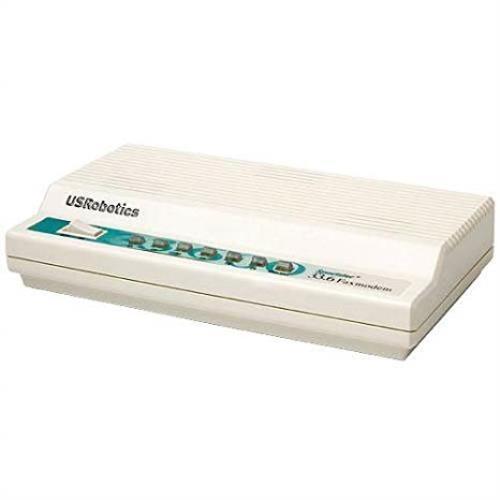
Greetings all. I this post finds you well.
Raise your hand, toot a horn, etc, if you know what this above image is. In case you don’t know, it’s a device that allowed me to personally and really get introduced to the world of the information highway (and I use this term as a substitute for the “internet” and not the web, because I watched the birth of the internet),
This dialup 56K modem is a device that was connected to both a computer and a telephone line that allow a user to connect to the internet. I remember owning a 14.4k USRobotics computer in the early 90s to allow me to connect to bulletin board systems (or BBSs), like DC’s digitalNation, with my new Mac Classic II computer. Those were the glory days and I even remember using slower modems at work.
Is it archaic? Sure it is, compared to where we’ve evolved to at present. Would I ever use it again? Definitely not, and now that I think of it, I don’t even think I could, if I wanted to. However, based on the definition of “archaic”, let me get to the question stated in the post title: Do you continue to use archaic technology and why? The answer for me is not only yes, but a resounding yes! I’ll explain why.
There are basically only two reasons why I choose to use archaic technology:
- 1 – Under various circumstances, the use of archaic technology can continue to serve a purpose in maintaining and sustaining certain processes that can still be executed in the midst of using current technology created to replace it.
- 2 – There is a certain enjoyment, a certain level of fulfillment in continuing to use archaic technology despite it being often times inconvenient, slower, tedious, etc compared to getting the same “tasks” done or reaching the same end goal. I’ll elaborate further.
First, I’ve been recording and producing music in various stages of my home recording studio for decades and, of course, recording technology (hardware and software) has and continues to go through upgrades and updates, putting consumers in a position to continually make a choice (sometimes being forced to) for upgrading their hardware and updating their software environments. The easiest path to take (if chosen and possible) is to do just that – upgrade and update. That path will allow for the most seamless continuity for getting the job done. One of the big reasons for that is hardware vendors and software developers, over time, discontinue support and manufacturing of the same items that have served you so well in your production environment.
Suppose you decide to forgo upgrading and/or updating items in your current production environment for whatever reasons you choose. You’re then left to use the current tech you have, which may well be on its way to be already considered archaic. This requires you to also source said hardware, especially, in case what you have fails to serve you (thank goodness for various sites like eBay, Reverb, Craigslist, and tons of other marketplaces that may allow you to still get said hardware). If you’re in luck, you can continue to maintain and use what you have, within the constraints you’ve always known, but sacrificing a faster, more convenient way of doing things. Being involved in music production for so long, I can tell you that many still go this route for reasons I won’t get into here.
On the software side, especially with mobile apps, this can be achieved too but via a more difficult approach. Smart phone and tablet mobile apps are constantly being updated due to the respective device OS (and device hardware) maturation, and what ends up happening is that mobile app developers eventually stop supporting apps for use with newer devices and their respective operating systems. If you like the way a specific does it job, you’re then forced to not only ensure that app stays on your current device but keeping the device running as well. I can’t tell you how many times this has happened to me. What needs to be taken into consideration even goes further – if the app depends on connecting to a website for operation (as in the case of Nike’s sunsetted Nike Fuel apps back in 2018), if that website goes down, you’re out of luck even if you maintain the mobile app and device it resides on.
Secondly, using archaic technology could simply (and oftentimes) just be a simple desire to experience all that is associated with the use of it from days gone by. Well known examples/approaches follow:
- mp3/audio players
- music CDs
- music cassettes and players
- vinyl records/turntables
- letter writing (plain old pen and paper/stationary)
- minidiscs
- typewriters
- analog and digital tape recorders
- hardware synthesizers/samplers/drum machines
All of these involve more inconveniences than the technologies that have replaced them, simply because the advancements of digital technology, internet connectivity, and GUIs make for far simpler and faster operations. Yet and still, there are many reasons, like use experience, associated memories, and the like, which cause those to continue using such technologies even in the midst of said ” inconveniences” .
So, back to the question at hand – do you and, if so, why?
Thanks for the read. Have a great day/night.
Fresh!

Hmmm…I still listen to CDs from time to time, and sometimes I listen to vinyl. I mostly drive old 4x4s. The most archaic technology I use is pencil and paper.
I can relate to a few of those, particularly pen, paper, and CDs.